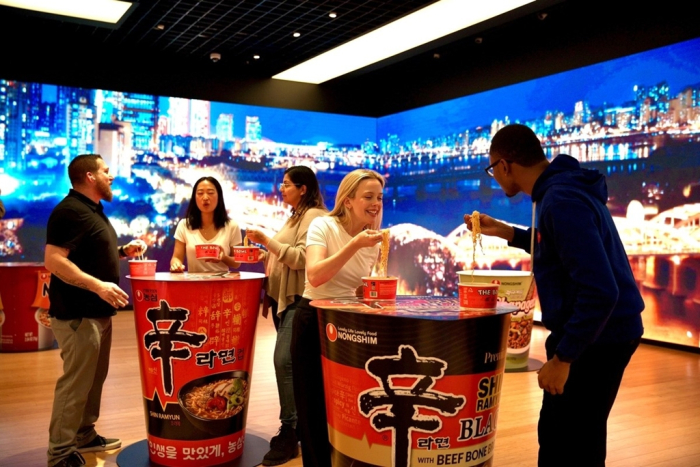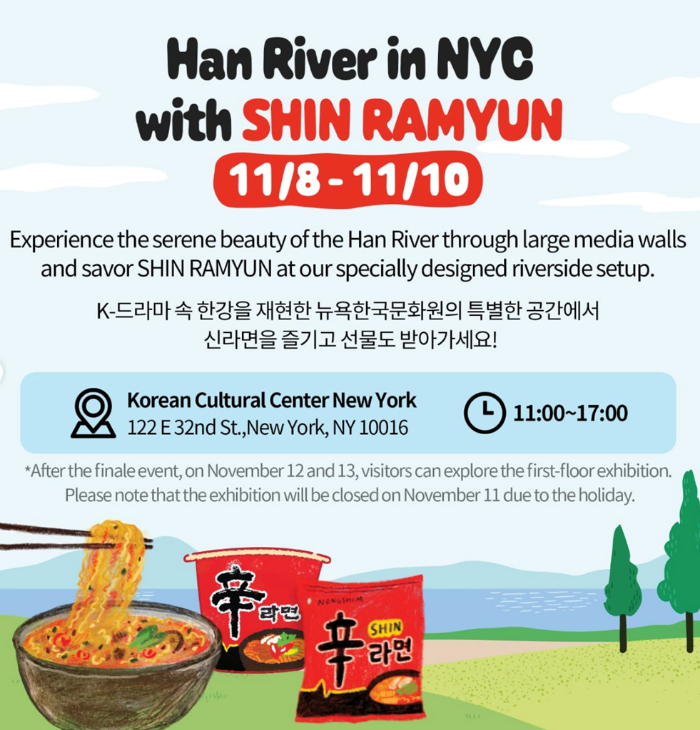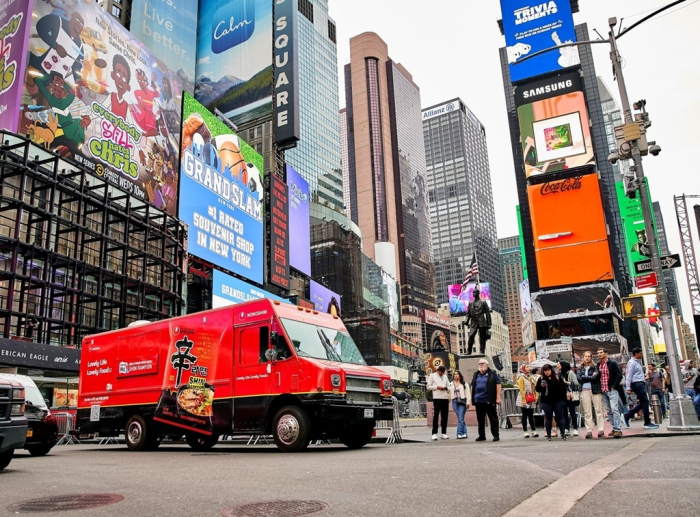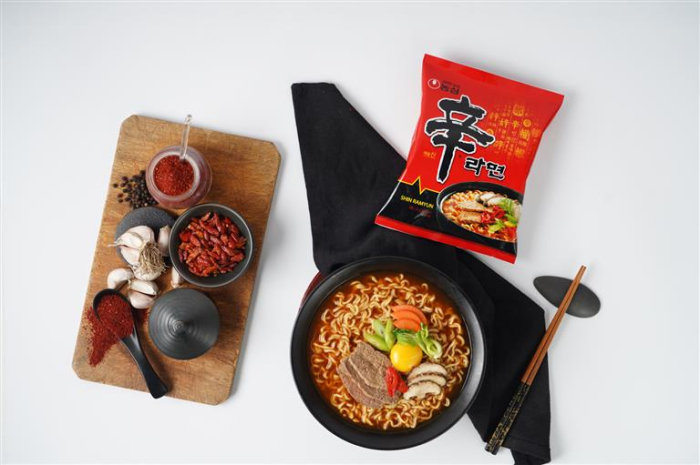
If you’re in Manhattan, New York this weekend, be sure to drop by the Korean Cultural Center.
The South Korean government agency, in partnership with the country’s top instant noodle giant Nongshim Co, is hosting a free taste of Seoul with the “It’s time for K-Culture” initiative.
Nongshim and the cultural center said on Friday they are jointly running a Han River in NYC pop-up for three days from Nov. 8, to allow New Yorkers to enjoy meticulously crafted authentic Korean culinary and cultural experiences.
The “Han River Experience in NYC with Shin Ramyun” event, running from 11 a.m. to 5 p.m., is free for everyone in specially designed setting to immerse visitors in an authentic Han River dining experience – transporting them from Midtown Manhattan to Seoul, the organizers said.

Nongshim said they will set up a replica of a Korean convenience store where customers can choose from stocked shelves of Shin Ramyun noodles to be cooked on site, for free.
Visitors can enjoy their ramyun on benches in a special area that, with the help of large LED screens and other special effects, will look and feel as if they were by the Han River.
“Experience the Han River as seen in your favorite K-drama. Visitors can enjoy Shin Ramyun by a recreated riverside setup with Han River visuals on large media walls,” the Korean Cultural Center New York (KCCNY) said in a statement.
“By introducing the essence of Han River culture – so beloved by the youth in Korea – to New York, we hope to offer a unique cultural experience that bridges the two cities. Through this event, we aim to share the spirit and charm of Korea, bringing a taste of its rich heritage to the heart of New York City,” said Michael Cheonsoo Kim, executive director of the KCCNY.

K-FOOD, K-CULTURE IN NY
“Shin Ramyun, as a brand representing Korean food culture, is pleased to introduce authentic Korean taste and culture to the world in NYC. We will continue to do our best to introduce Korean food culture on the global stage,” said Dongyeob Shin, president of Nongshim America.
Leading up to the “Han River in NYC with Shin Ramyun,” event, Nongshim and the KCCNY hosted the Korean Restaurant Week from Oct. 28 to Nov. 7 to allow New Yorkers to enjoy the diversity of Korean culinary delights with a 10% discount at 26 participating restaurants.
At Hojokban, a Korean fusion restaurant featured in the New York Times, showcased a popular fried rice dish made with Shin Ramyun and Chapaguri, a combination of Nongshim’s black soy bean sauce noodle Chapaghetti and the hot spicy noodle Neoguri.

On Oct. 31 and Nov. 1, Nongshim also promoted Shin Ramyun across New York, using food trucks at popular spots such as Washington Square Park, New York University and Times Square.
Nongshim, and its crosstown rival Samyang Foods Co., have been ramping up production to meet rising demand overseas.
In 2017, Nongshim overtook Japanese ramen maker Nissin Foods to rise to the second spot after Toyo Suisan in the US ramen market.
Nongshim shipped 307 million won ($221,166) worth of instant noodle products, including its flagship Shin Ramyun, to overseas markets in 2023, a 70% jump from 2019.
By Hyung-Joo Oh
ohj@hankyung.com
In-Soo Nam edited this article.















